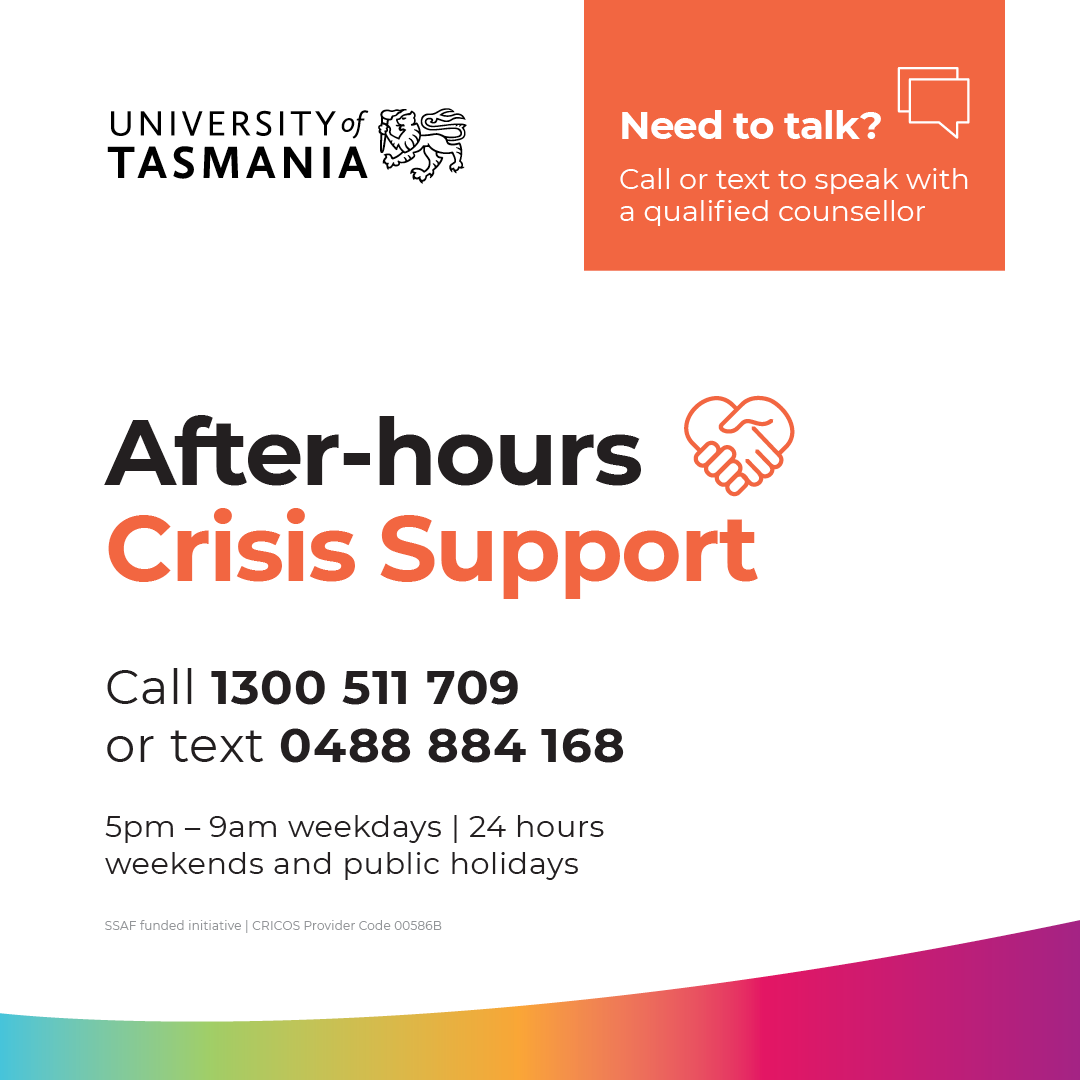Meeting People
and Making Friends
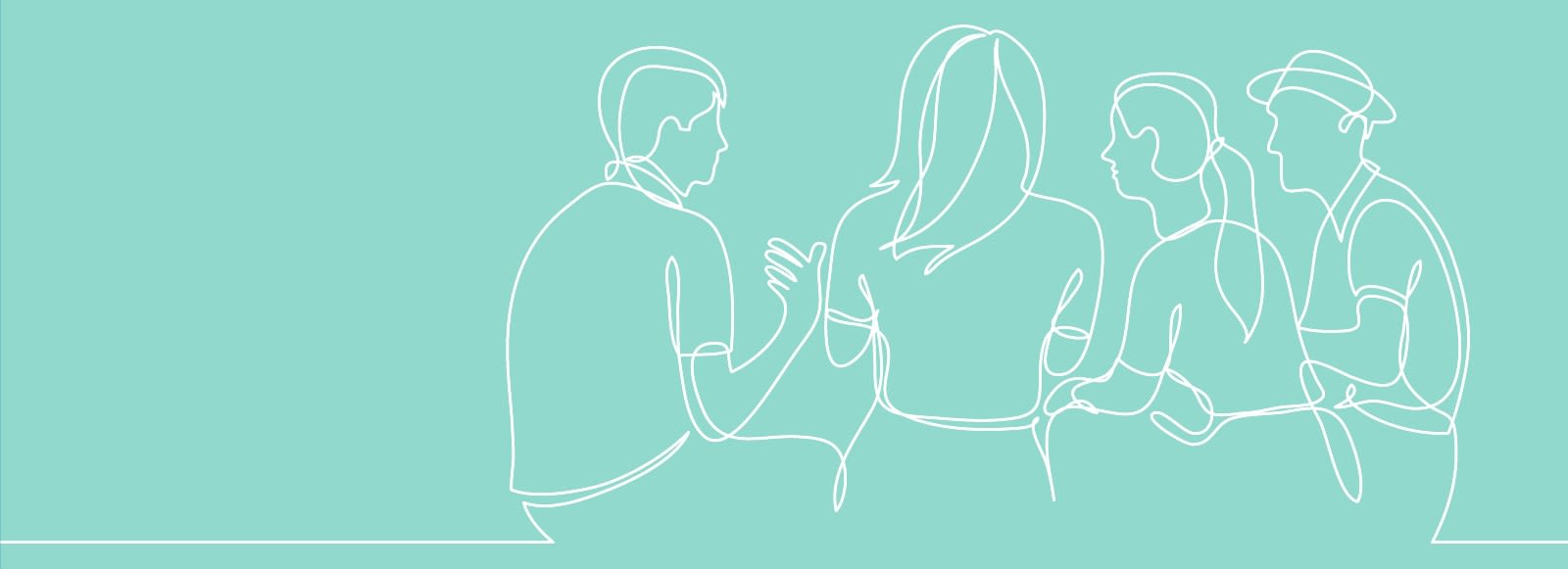
Whether you are new to study or have been studying at UTAS for a while now, it can be tricky to meet new people. Sometimes, these things can naturally fall into place, but more often, expanding and developing social networks takes time and energy (and perseverance!). This page provides an overview of some of the ways in which you can meet new people, both within UTAS and in the broader community.
Where do I start?
It is important to keep an open mind, be willing to give things a go and put yourself outside of your comfort zone. Expect that you might feel anxious at times and you might have some awkward conversations (everyone does!). Putting yourself into new situations and taking a proactive role in meeting new people (including approaching and starting a conversation sometimes), will enable you to find people you get on with and start developing new friendships.
You might feel like you are the only one feeling anxious and lonely, but many other students are feeling the same way. In your classes other students are feeling a bit nervous and shy too. Sometimes it just takes someone brave enough to break the ice and make that first move. You could be that person.
If you find it hard to start a conversation with someone new, or are unsure of how to meaningfully connect with others, these videos have some helpful tips:
Watch the webinar below run by the university counselling service, TUU student reps, and UTAS Student Engagement Leaders on loneliness and making connections.
Lectures and Classes

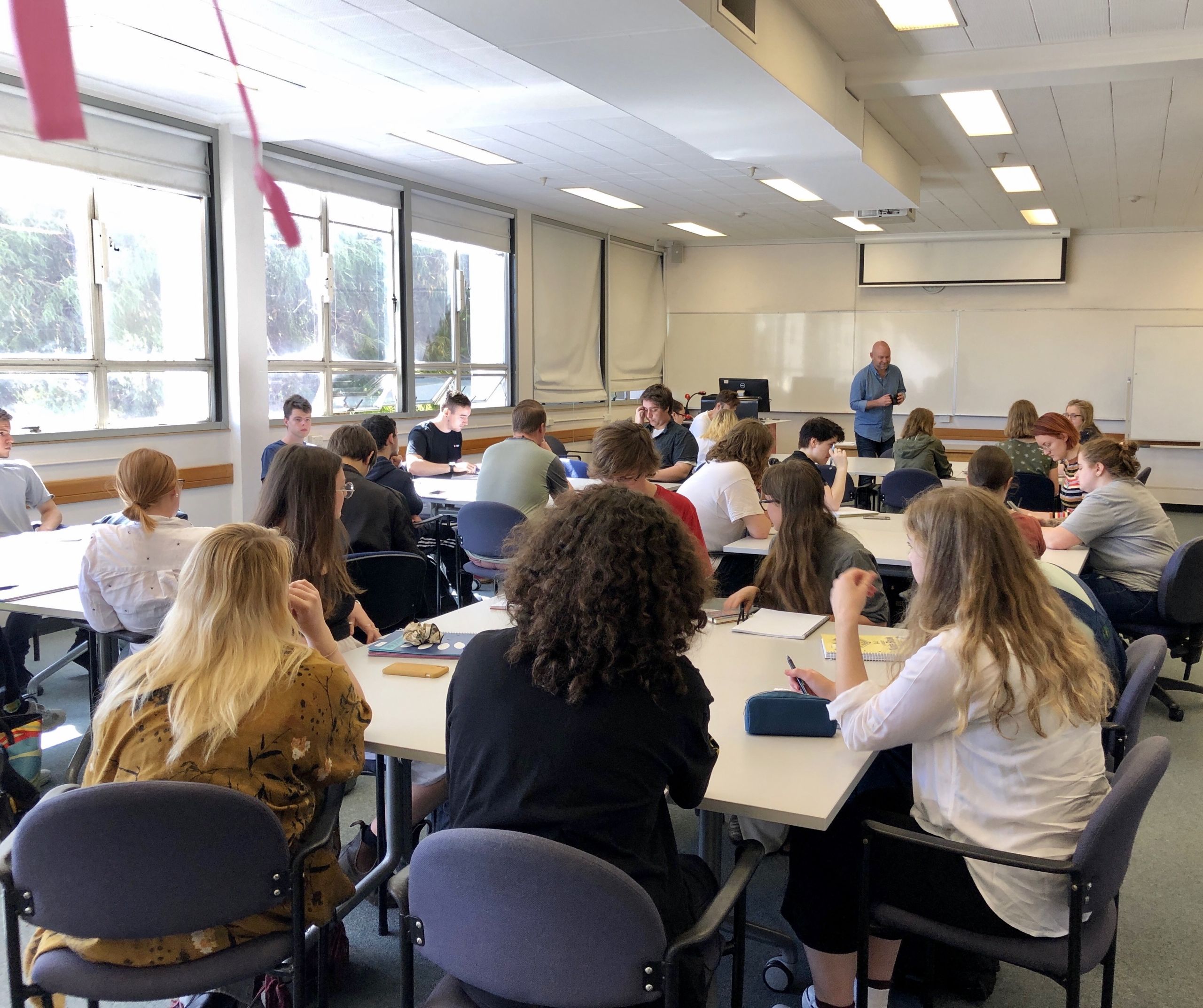
For your in-person classes, boost your chances of connecting with others by considering these options:
- Arrive early for class and make small talk with your classmates
- Sit next to someone and introduce yourself
- Resist the urge to look at your phone and smile at others instead - this will make you seem more approachable
- Be prepared for your classes. This will help you be able to join in with class activities (and interacting with your classmates).
- Sometimes the hardest part can be trying to take the friendship outside of class and it can be tempting to wait for the other person to suggest something. But if we all take this approach, then nothing will ever happen! Consider being that person to suggest something, even as simple as a coffee after class
- See if anyone would be interested in getting together for study sessions
For your online classes, you might find it harder to connect with your classmates. Here are some options to consider:
- Use the unit discussion board
- Use the chat functions in Zoom to say hi to your classmates and introduce yourself
- Try to still actively participate in your classes, this will help you to connect with others
- You might like to set up a social media group (e.g. Facebook) for your unit or check for an existing one.
- Other ways to connect with fellow online and distance students include joining Facebook groups such as UTASLife.
Student Learning groups and workshops: The Student Learning Advisor team offer workshops to help support your academic skills. These also provide an opportunity to chat with other students.
PASS sessions: Peer Assisted Study Sessions (PASS) offer free unit specific group study sessions led by students who have previously succeeded in the unit. In sessions, students work together to revise content and strengthen study skills in a relaxed and friendly environment. As these sessions are smaller groups and discussion based, they can provide a good opportunity to get to know other students in your units.
UTAS Clubs and Groups

You can connect with others and find out about activities and events in the UTAS app.
The Community page and the Student Events page in the Student Portal are also great places start exploring student events, activities, clubs and groups.
Tasmanian University Student Association (TUSA): The TUSA is the peak body of student representation for students. If you want to know who your student representatives are or if you are passionate about student issues and would like to get involved, check out their website.
The TUSA also run events throughout the year that provide opportunities to meet other students. The best way to hear about their events is via the Facebook page, local Facebook group (North, Cradle Coast, or South) or the UTASLife events page.
Clubs and Societies: There are over 100 clubs and societies at UTAS catering to a range of interests. Clubs and societies can be a great way to meet people who share similar values and interests. In addition, they enable you to try out something new and meet different people.
For a list of clubs and societies check out:
Many clubs and societies also have their own Facebook page, allowing you to keep up to date with their activities. Throughout semester, if you would like to get involved, send a message to the organising committee, join the Facebook group or attend one of their advertised events.
International Students: check out the international student guide and consider connecting with an International Student Advisor.
Unigym: Attending the gym or a group fitness class can be another way to meet people on campus.
Get Up and Go is a peer-support walking program for students who want to meet new people, improve or maintain their level of physical exercise, or support their emotional wellbeing.
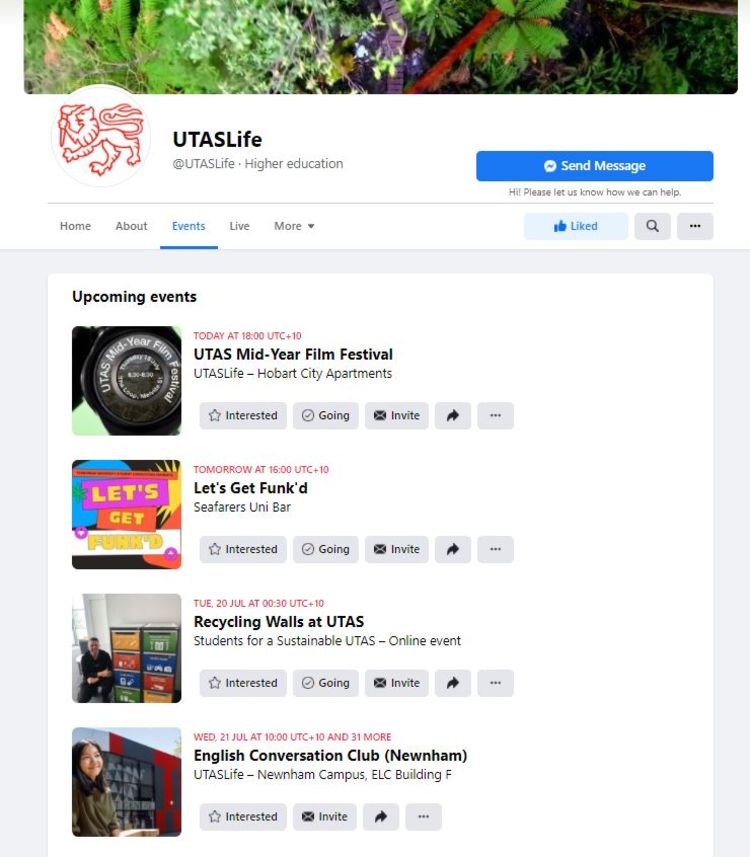
Jobs and Volunteering

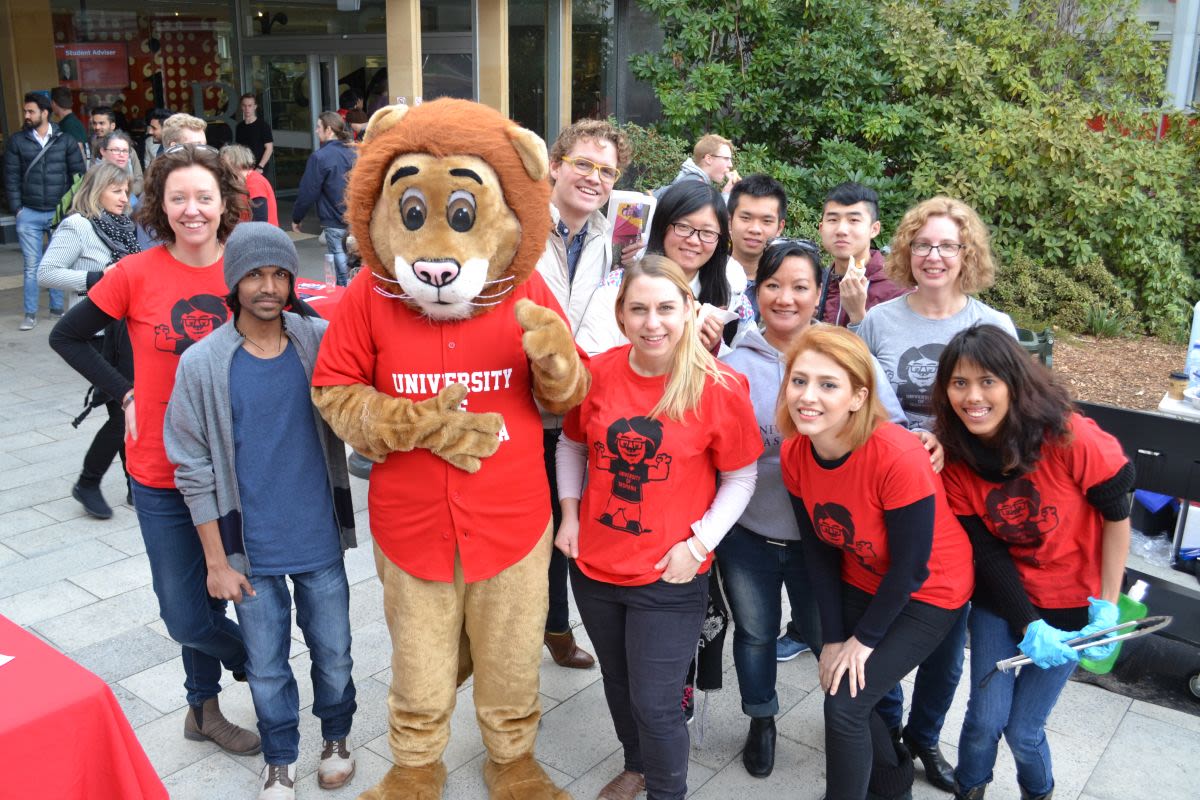

Careerconnect: Careerconnect is UTAS' central point to hear about paid work and volunteer opportunities suitable for current students and graduates.
By joining the UTAS Volunteer Register you will have a range of opportunities to volunteer on campus and in your local community, as well as nationally and internationally. You will receive online induction to ensure you are ready to join our volunteering experiences, and access to professional development activities.
Other community organisations for volunteering include:
- Go Volunteer by Volunteering Australia
- Volunteering Tasmania
- Crisis Heroes - a free community platform where you can offer or seek help
Passionate about particular issues e.g. animals? Climate change? Supporting older adults? In addition to using the search registries above, you can also use an internet search to find out about local organisations and ways of getting involved.
Community Groups

How Do I Find Them?
If you would like to meet more people outside of UTAS, then there are plenty of clubs and societies catering for a wide range of interests. The best way to find out about them is to use an internet search (e.g. Google search "social groups in Hobart"). Websites give an overview of what the clubs are about, and you can contact one of the organisers to find out more information.
Australia wide
Meetup is a website where people create their own social groups. Groups can be based on a particular interest e.g. bushwalking, but can also be broader, such as age-based social groups. See the website for your local groups.
Rostrum and Toastmasters offer the opportunity to practice and improve public speaking skills. Contact your local group for more information.
Park run is a free, community event where you can walk, jog, run, volunteer or spectate. parkrun is 5k and takes place every Saturday morning.
Hobart
Knockoffs Run Club is a social community Run Club, based out of North Hobart. Runs leaving each and every week , with all ages and abilities welcome, including dogs!
Kickstart Arts is a community arts and cultural development (CACD) organisation running a range of creative art workshops including dancing, singing, and theatre.
Science in the Pub is a relaxed monthly forum where 2-4 panelists deliver short, 10 minute presentations on their topic followed by a Q and A.
Silver Words is a monthly spoken word open-mic event, which means you can perform anything that you can speak, rap, yell, whisper or declaim, as long as it’s spoken.
Source Wholefoods is a community garden, cafe, and wholefoods grocer that also hosts a range of workshops and events.

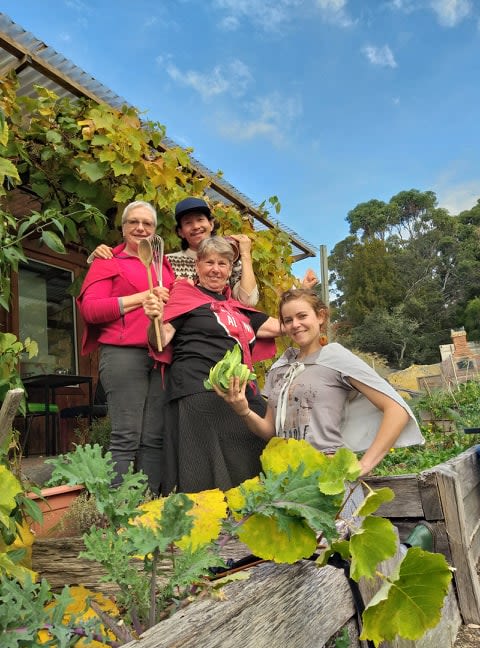
Further support

If loneliness or social anxiety is affected your UTAS experience and your mental health, further support is available.
The University Counselling Service offers confidential and professional counselling to students experiencing a range of academic, mental health and personal concerns including (but not limited to) anxiety, stress, depression, motivational problems and relationship difficulties. If you would like support in managing your anxiety and making meaningful connections with others, then UTAS counsellors can support you.
